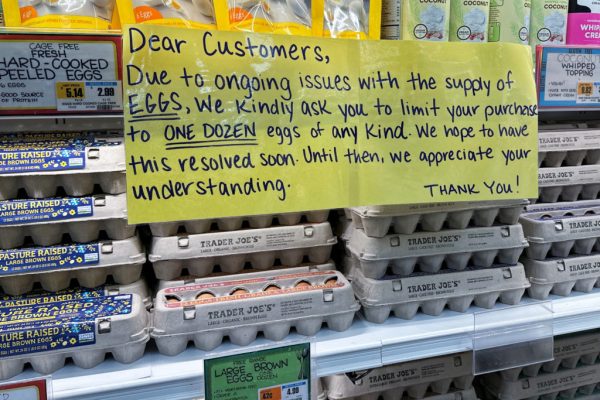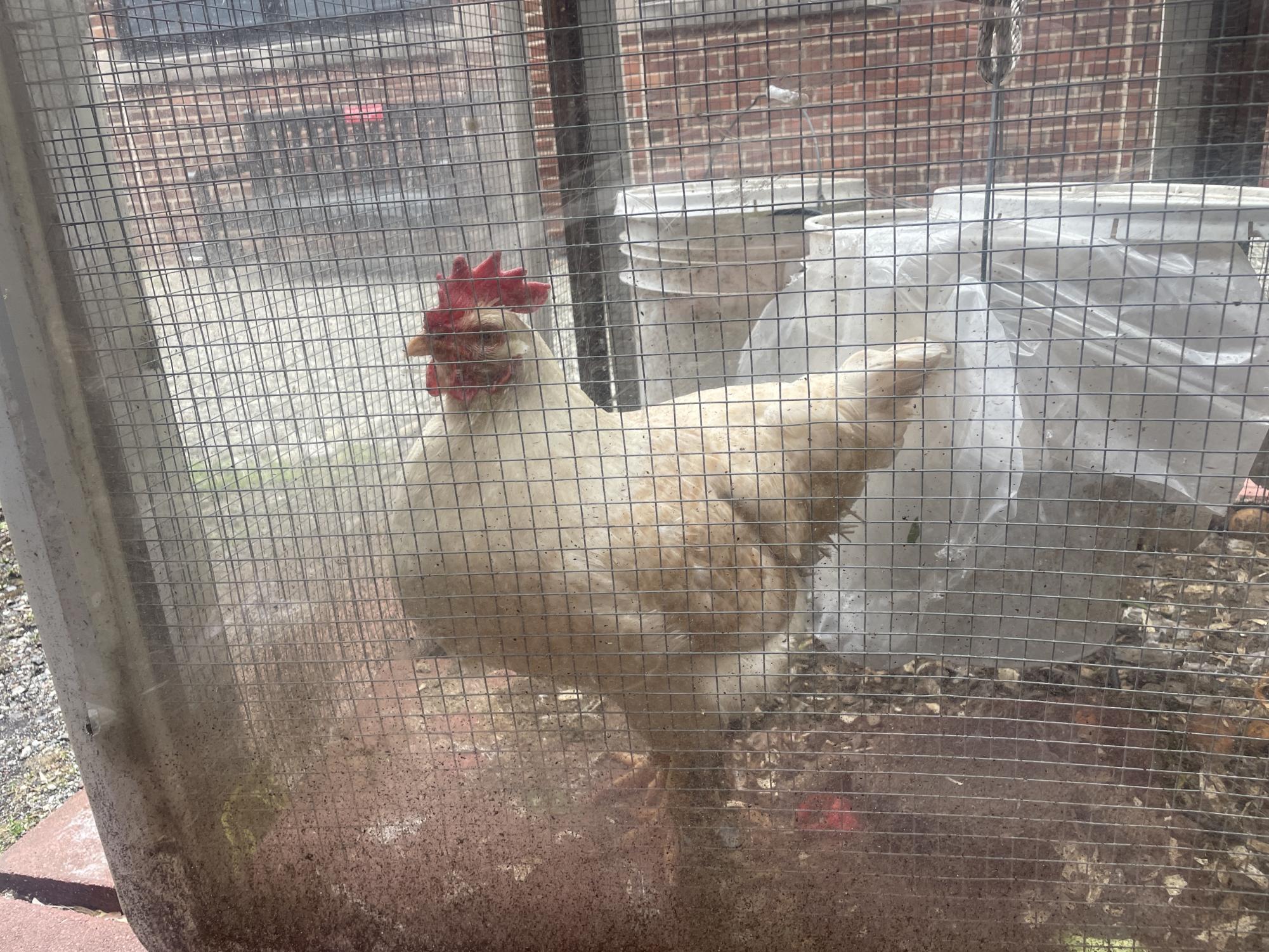If you were thinking about filling your stomach or Easter basket with eggs this year, you might want to think again. In recent weeks, the average price of a dozen eggs has hit $7.47 with some stores even selling them for as high as $10. Both families and businesses are finding it hard to justify the buy despite the upcoming holiday. Between creative ideas to dye potatoes, or new initiatives for backyard chicken coops, the community is scrambling to find solutions.
You may be curious as to why the egg prices have skyrocketed in the past few months? The price increase is mostly due to the worst avian flu outbreak in United States history. It is projected by the U.S. Department of Agriculture that over 52 million egg laying hens died just last year, and about 20 million in this last quarter. Although they have not detected many new outbreaks in the past two weeks, the spikes in pricing are still making waves in grocery store isles. Big box stores like Costco and Trader Joe’s have recently put limits on the amount of egg cartons you can buy, making it harder for families and local businesses to keep stocked.

For households like mine that use eggs for daily meals and fun Easter traditions, the rising costs have forced families to make difficult decisions. Many families are scraping their egg fun for new alternatives, and people across town have come up with some great ideas on how to do that. Senior, Amanda Davidoff, has shared what she is doing this year, “We are going to be dying potatoes instead of eggs. It may seem silly, but the egg prices have really just been crazy. My family and I are protesting the high prices and hope the egg companies will lower them soon.”
Local legislation, like Glen Rock’s many zoning laws, also prevent people from raising their own backyard chickens. According to Borough of Glen Rock’s General Legislation on Fowl and other animals, “No person shall keep or house within the municipality any cow, sheep, goat, buffalo or other ruminant animal…chicken, duck, goose, or other fowl; or any other animal that can be dangerous to humans if such animal escapes from captivity.” Finding a personal source of eggs could have been a solution for local townspeople to cut grocery costs. Without that option, many businesses and families are forced to pay the current outrageous price with no help.
The egg crisis is also affecting small businesses that rely heavily on eggs and their prices. Abma’s, a local farm in Wyckoff New Jersey, has recently been forced to raise their prices due to such high demand. Maggie Casper, an employee at the farm, shares her insight on the egg crisis, “After raising our dozens by two whole dollars over three days, it’s really sad to see customers’ reactions. With regulars coming in weekly to get their fresh eggs, the look on their faces when they see the shelves all empty and the prices raised is incomparable. As an employee, it was crazy to me to see the eggs prices leap so high, even when our chicken coops have not been directly impacted by the Bird Flu. Another factor that customers have been upset about is our lack of egg salad, an Abma staple, because of egg’s heightened demand.” With lack of inventory, many people are looking for alternative ingredients or adjusting their diets to adapt.
Even with the challenges, communities are still finding ways to celebrate Easter without emptying their pockets. Many local events, like the annual egg hunt at St. Catherines, give families a chance to enjoy some Easter fun. The hunt is still set to occur on Easter morning, April 20th, at 11:00 am in the front field.
While egg prices may have ruined some breakfasts and Easter traditions, families and businesses are proving that a little creativity can keep the egg fun alive. Whether it’s choosing to shop local, or testing out other foods to dye, there are different ways to celebrate without an egg-spensive carton of eggs.





